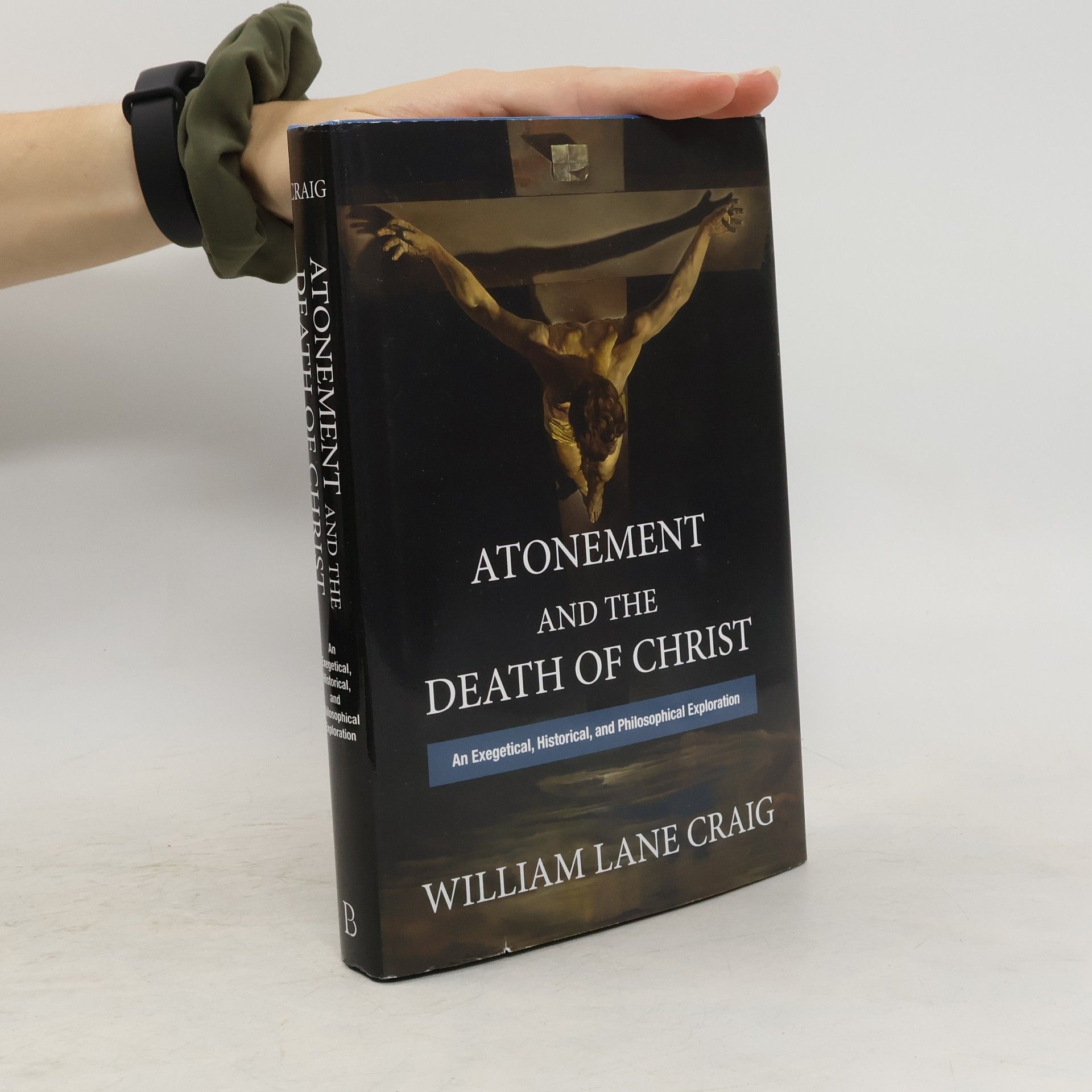Engaging deeply with the nature of God, this volume explores divine attributes such as incorporeality, aseity, and omniscience through a blend of biblical and philosophical perspectives. William Lane Craig articulates a rational framework for understanding Christian doctrine, addressing significant philosophical inquiries about God's existence and characteristics. The text also offers innovative insights into traditional theological concepts, making it a vital resource for scholars, students, and anyone interested in the intersection of faith and reason.
William Lane Craig Book order (chronological)
William Lane Craig is a research professor of philosophy, focusing on arguments for God's existence and the defense of a Christian worldview. His work delves into the philosophy of religion, ethics, and cosmology, characterized by meticulous argumentation and thorough examination. Craig endeavors to bridge faith and reason, offering profound insights into complex theological and philosophical questions.






Systematic Philosophical Theology, Volume 1
Prolegomena, On Scripture, On Faith
- 304 pages
- 11 hours of reading
Engaging with deep philosophical issues, this volume introduces systematic philosophical theology within the Protestant tradition. William Lane Craig explores the relationship between theology and disciplines like biblical and historical theology, emphasizing the divine authority of Scripture and the rational justification for faith. By integrating philosophy and theology, it establishes a comprehensive worldview that bridges sacred and secular knowledge. This foundational work is essential for scholars, theologians, and students interested in the intersection of faith and reason.
Dr. Craig's "Wie ist Gott?" Gott ist unabhängig
Die Eigenschaften Gottes - erklärt für Kinder
Die Erkundung der Eigenschaften und der Natur Gottes steht im Mittelpunkt dieser tiefgründigen Auseinandersetzung. Der Autor beleuchtet verschiedene Perspektiven und philosophische Ansätze, um ein umfassendes Bild von Gott zu zeichnen. Dabei werden sowohl theologischen als auch persönlichen Erfahrungen betrachtet, um die Beziehung zwischen Mensch und Gott zu verstehen. Die Themen Glauben, Zweifel und die Suche nach Sinn werden intensiv diskutiert, was den Leser dazu anregt, eigene Überzeugungen zu hinterfragen und zu reflektieren.
Dr. Craig's "Wie ist Gott?" Gott ist allmächtig
Die Eigenschaften Gottes - erklärt für Kinder
Die Erkundung der Eigenschaften und der Natur Gottes steht im Mittelpunkt dieses Buches. Es werden verschiedene Perspektiven und theologischen Konzepte vorgestellt, die von unterschiedlichen Glaubensrichtungen und Philosophien geprägt sind. Der Autor beleuchtet, wie Menschen über Jahrhunderte hinweg versucht haben, das Göttliche zu verstehen und welche Rolle persönliche Erfahrungen dabei spielen. Zudem werden zentrale Fragen zu Glauben, Zweifel und Spiritualität behandelt, um dem Leser eine tiefere Einsicht in die Beziehung zwischen Mensch und Gott zu ermöglichen.
Die Buchreihe „Wie ist Gott?“ umfasst zehn illustrierte Hefte, die Kindern christliche Wahrheiten und Antworten auf ihre Fragen über Gott vermitteln. Sie behandelt zentrale Eigenschaften Gottes und nutzt Figuren wie Papa Bär und Mama Gans, um theologische Themen spannend und verständlich zu erklären und Gespräche anzuregen.
Die Buchreihe „Wie ist Gott?“ umfasst zehn illustrierte Hefte, die Kindern christliche Wahrheiten und Antworten auf ihre Fragen über Gott vermitteln. Sie behandelt zentrale Eigenschaften Gottes und nutzt Figuren wie Papa Bär und Mama Gans, um theologische Themen spannend und verständlich zu erklären und Gespräche anzuregen.
Die Buchreihe „Wie ist Gott?“ umfasst zehn illustrierte Hefte, die Kindern christliche Wahrheiten und Antworten auf ihre Fragen über Gott vermitteln. Sie behandelt zentrale Eigenschaften Gottes und nutzt Figuren wie Papa Bär und Mama Gans, um theologische Themen spannend und verständlich zu erklären und Gespräche anzuregen.
Die Buchreihe „Wie ist Gott?“ umfasst zehn illustrierte Hefte, die Kindern christliche Wahrheiten und Antworten auf ihre Fragen über Gott vermitteln. Sie behandelt zentrale Eigenschaften Gottes und nutzt Figuren wie Papa Bär und Mama Gans, um theologische Themen spannend und verständlich zu erklären und Gespräche anzuregen.
Die Buchreihe „Wie ist Gott?“ umfasst zehn illustrierte Hefte, die Kindern christliche Wahrheiten und Antworten auf ihre Fragen über Gott vermitteln. Sie behandelt zentrale Eigenschaften Gottes und nutzt Figuren wie Papa Bär und Mama Gans, um theologische Themen spannend und verständlich zu erklären und Gespräche anzuregen.
Five arguments to defend your faith. In an increasingly secular world, Christians face more pressure to justify their beliefs. Confronted by confident atheists, can you be sure your faith in God is reasonable? In How Do We Know God Exists?, William Lane Craig offers five air--tight arguments for God's existence. Not only are these arguments rational, but they have not been disproven--let alone adequately challenged. You can have confidence that your faith is grounded. The Questions for Restless Minds series applies God's word to today's issues. Each short book faces tough questions honestly and clearly, so you can think wisely, act with conviction, and become more like Christ.